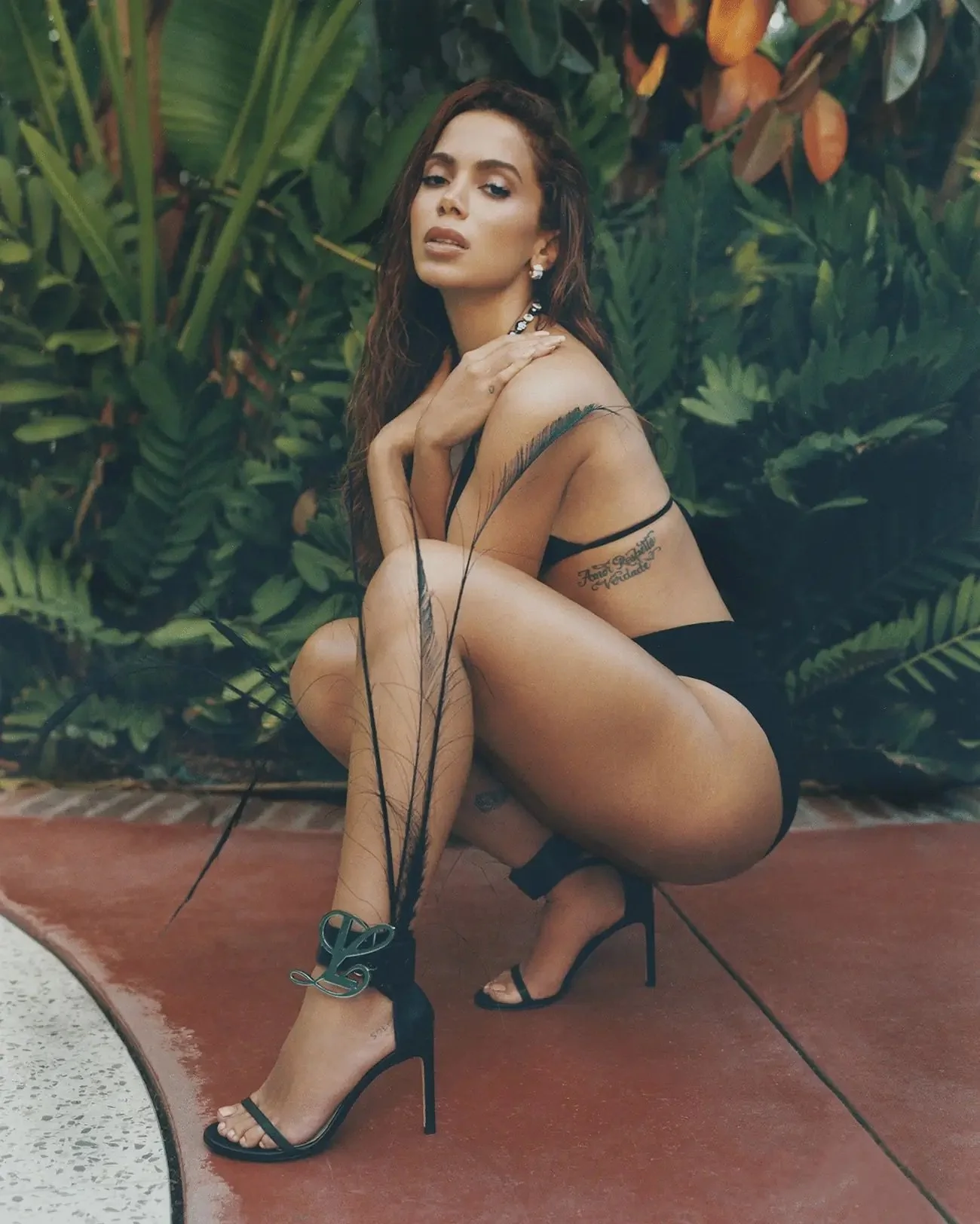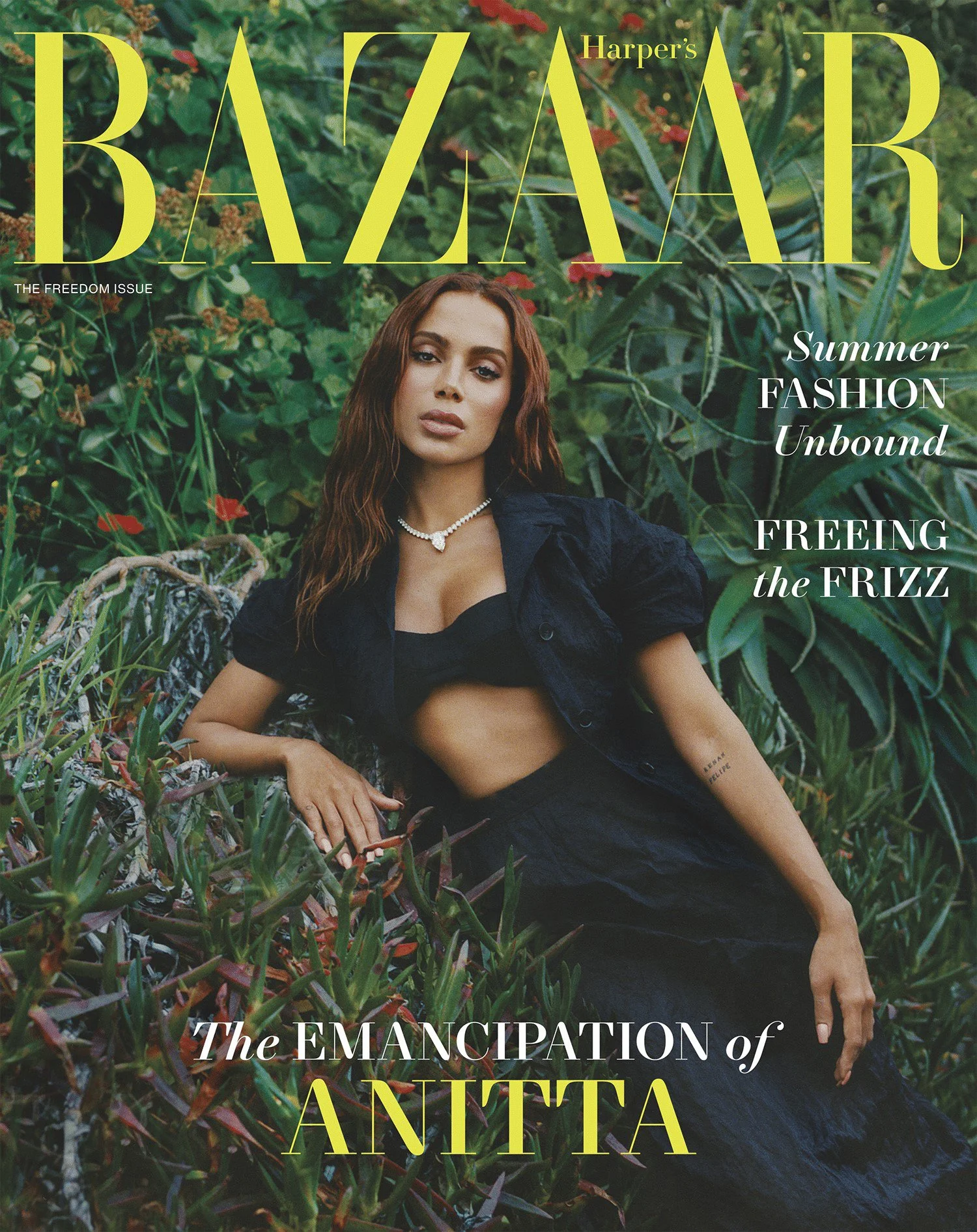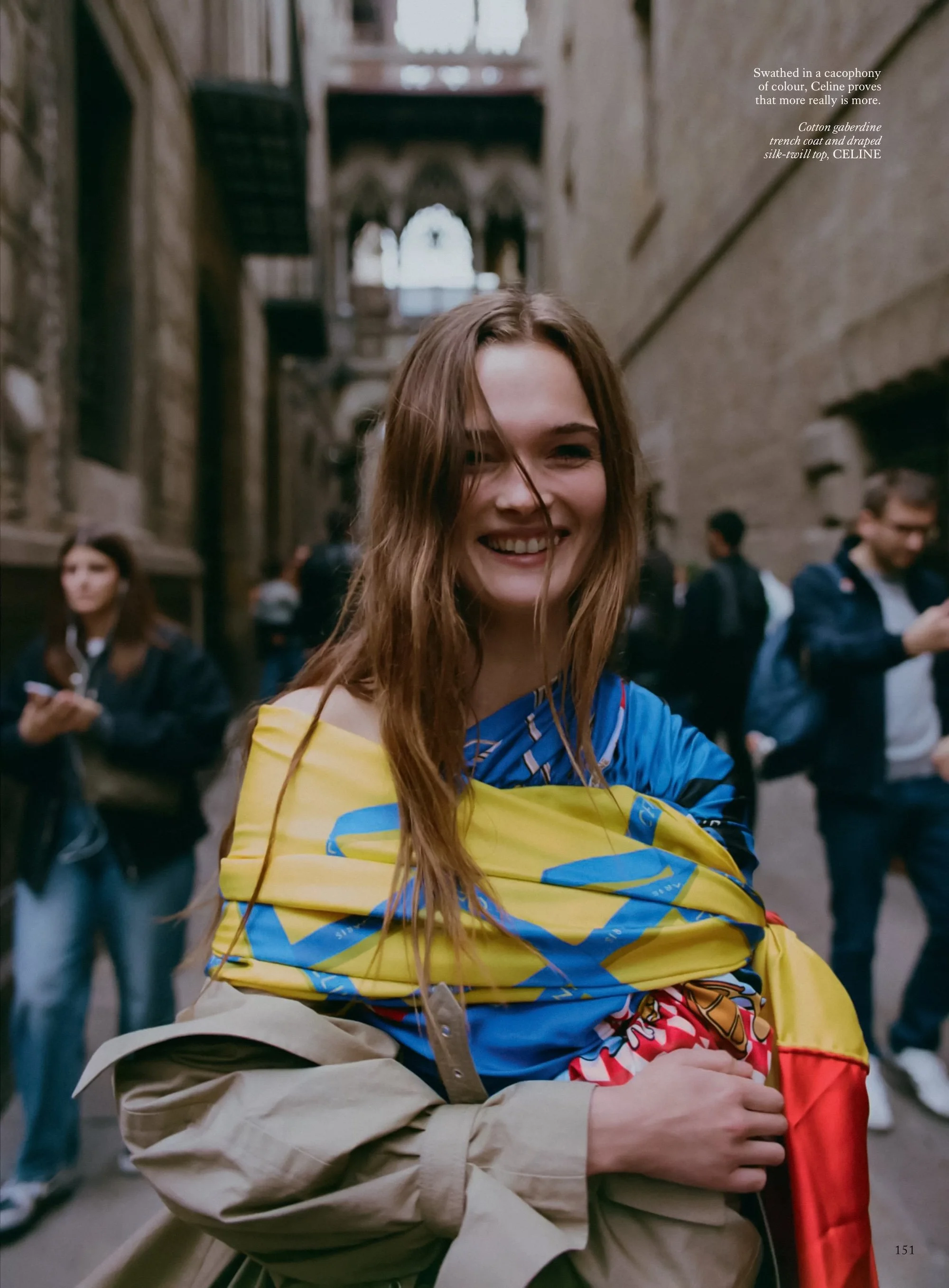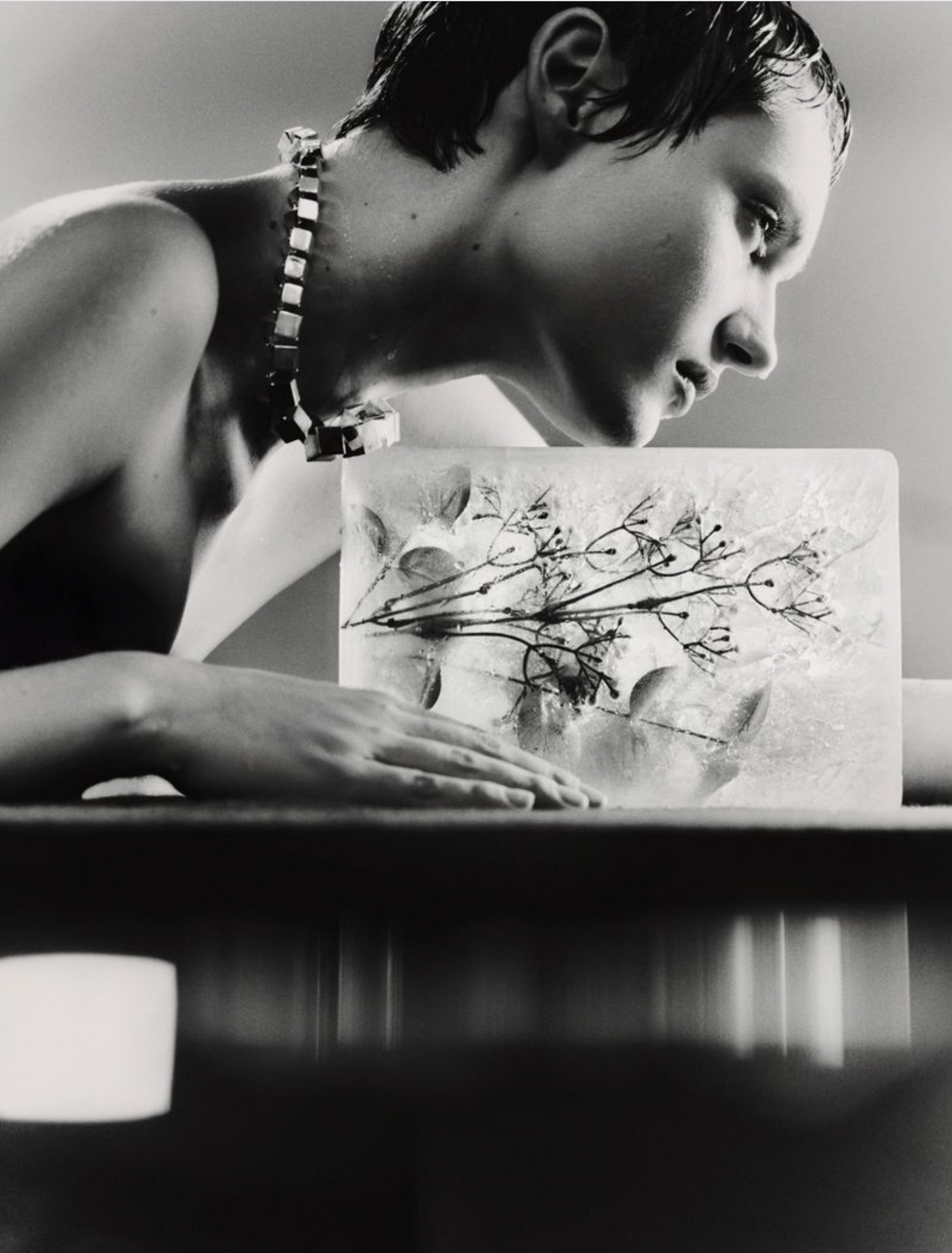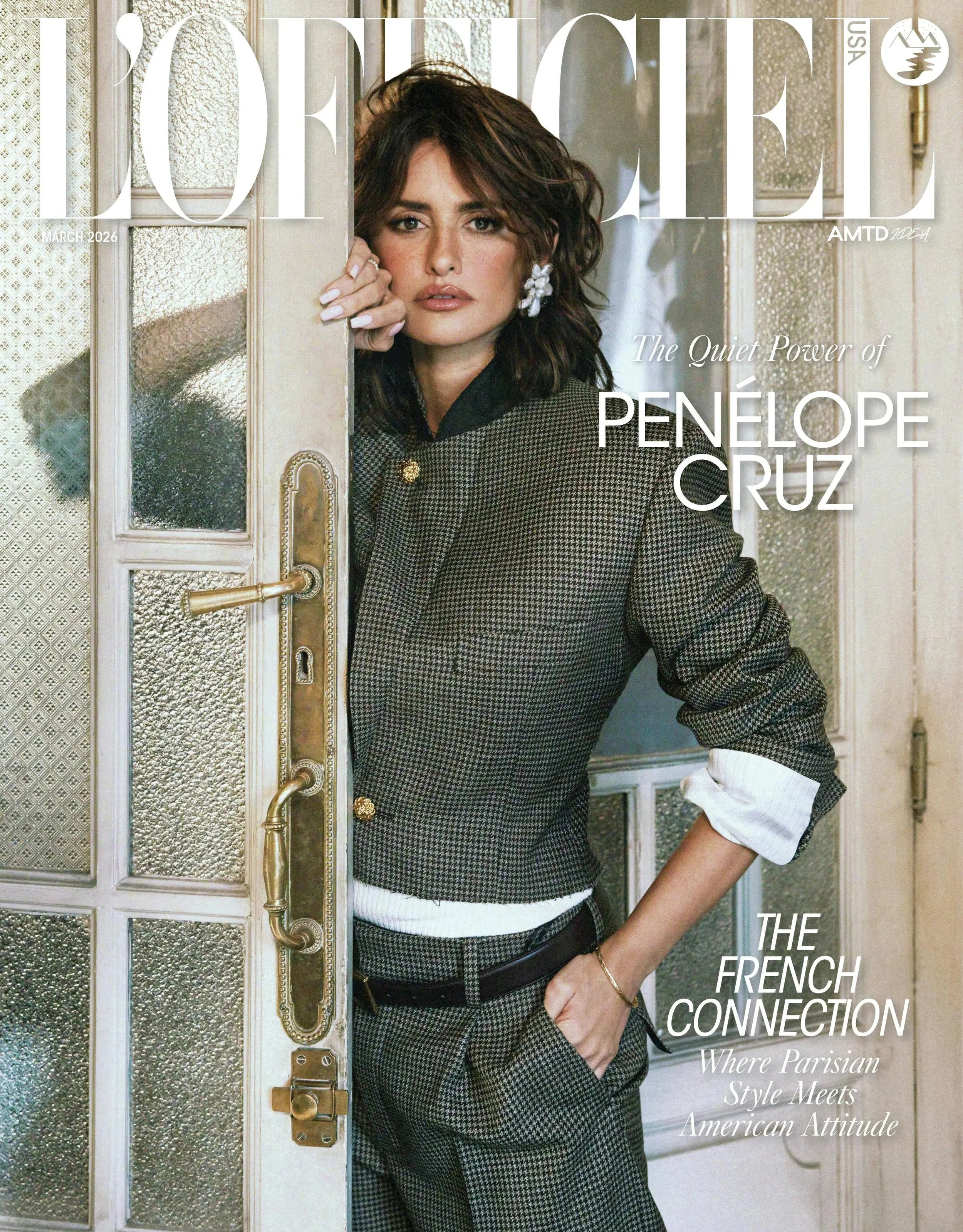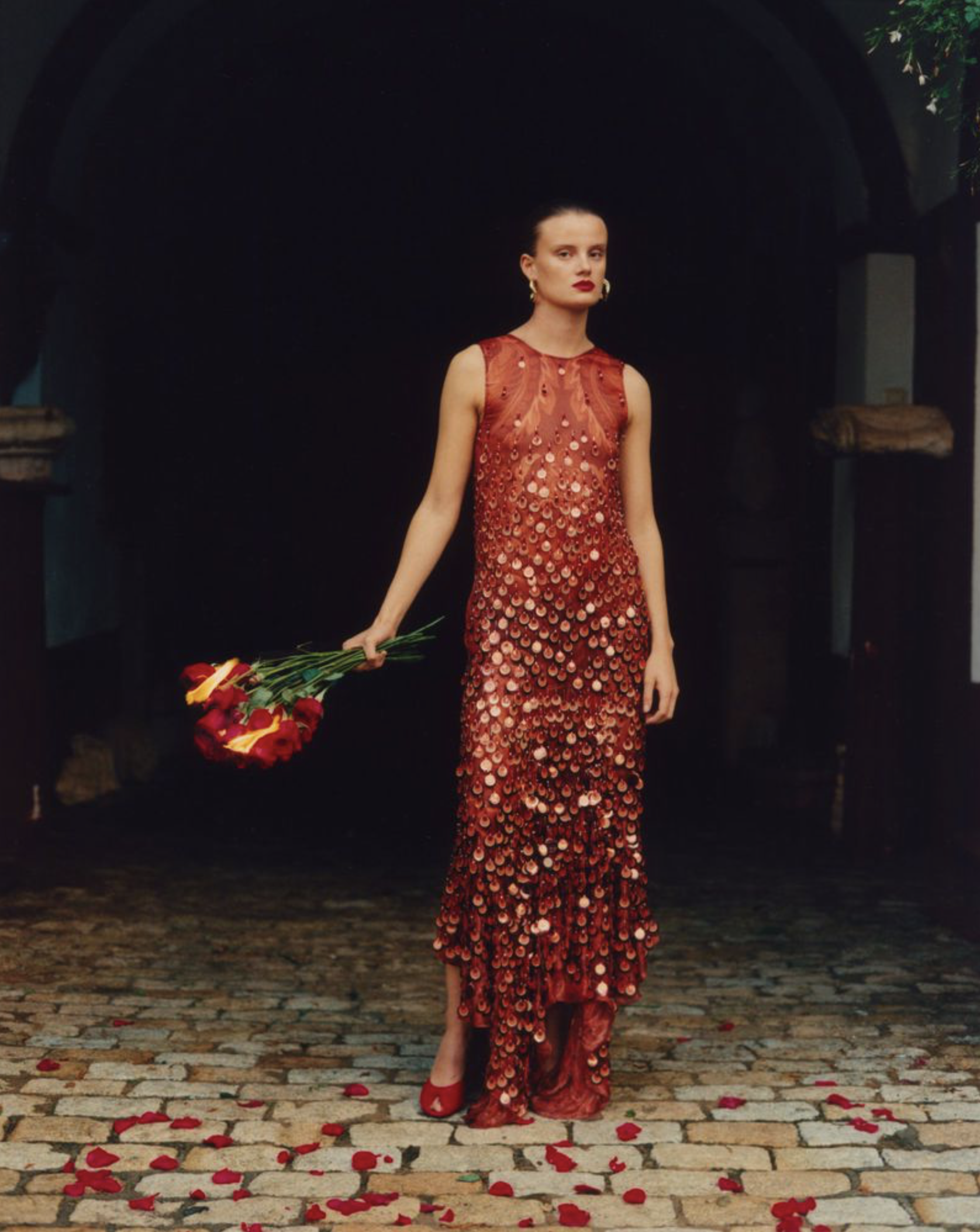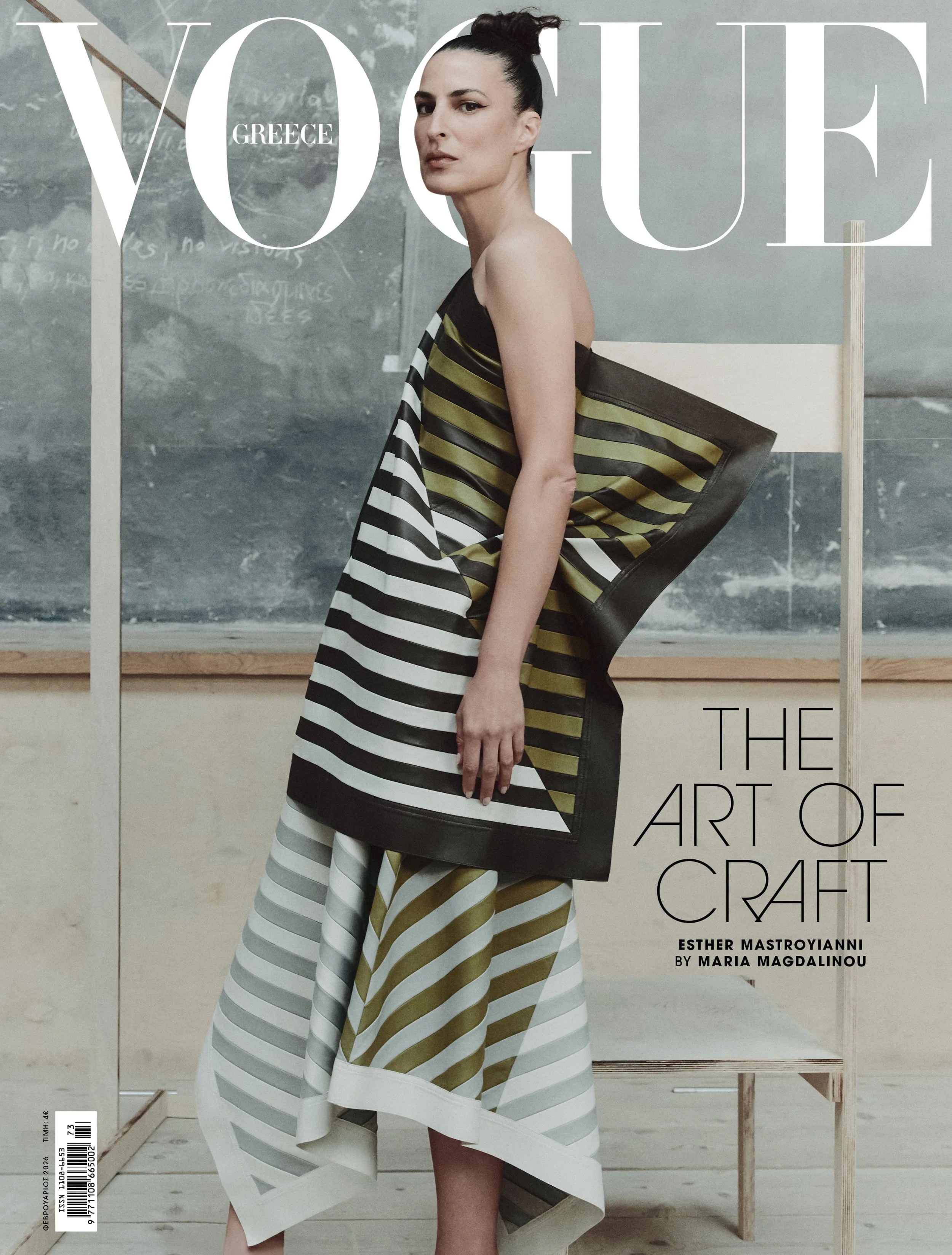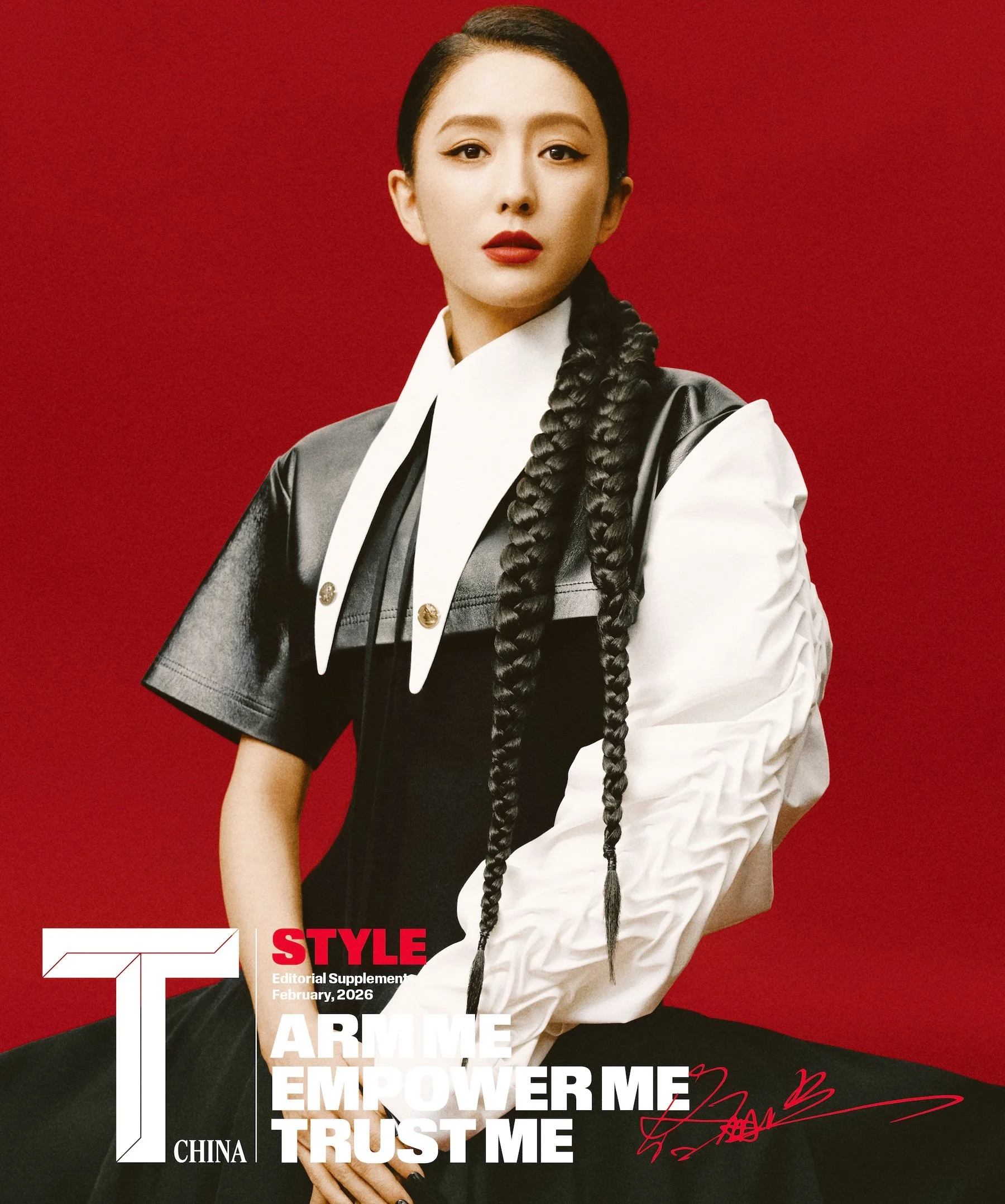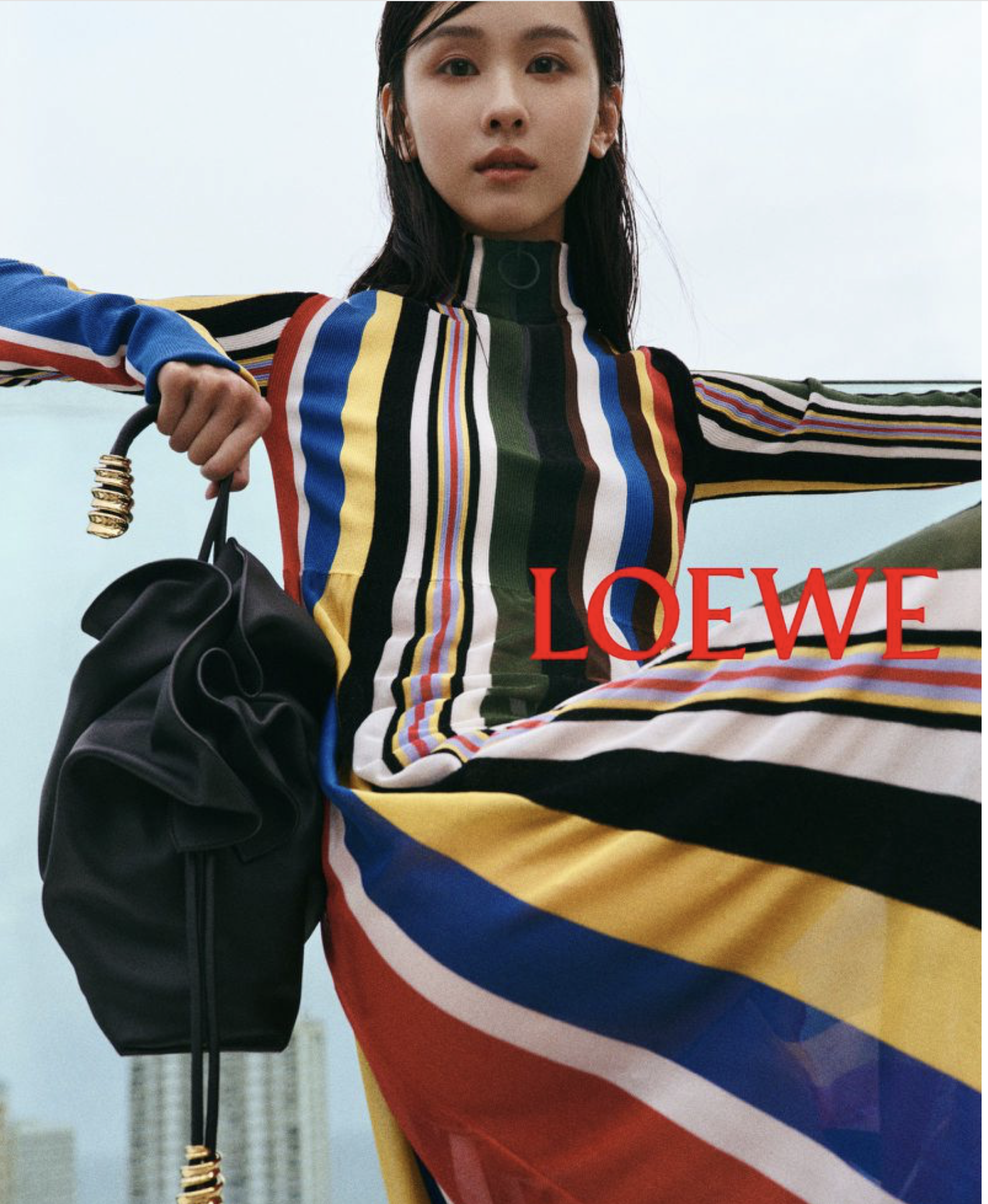Anitta's Global Takeover for Harper's Bazaar US June-July 2023 Includes Social Justice
/When we last left Anitta, in November 2022, she was honored as the WSJ 2022 Music Innovator. The Braziian phenom was fresh off her winning Favorite Female Latin Artist at the American Music Awards, making her the first Brazilian to win the AMA honor.
Today, we meet up with Anitta in the June-July 2023 issue of Harper’s Bazaar US, where she wears Dior on the cover in a fashion story lensed by Emmanuel Sanchez-Monsalve [IG].
Fashion editor Yashua Simmons chooses bodycon, sophisticated, sensual fashion from Chanel, David Laport, Givenchy, Gucci, Jade Swim, Marc Jacobs, Rick Owens, Skims and more./ Hair by Tamas Tuzes, make-up by Laura Stiassni
Julianne Escobedo Shepherd conducts the interview for the cover story “Let Anitta’s Global Takeover Begin."
Good News About the De Beers Necklace
Because the interview touches on social justice issues, AOC notes that the star is wearing a De Beers necklace on the cover. For any of us who are social justice warriors, AOC shares the good news that De Beers and the government of Botswana signed a landmark agreement two weeks ago that not only advanced De Beers sustainability commitments, but put Botswana on a path to equal sharing with De Beers in diamonds being mined.
Under the old agreement, Botswana received 25 percent of the rough stones extracted, while De Beers took the remaining 75 percent. Immediately, Botswana will receive a 30 percent share, with an escalating increase to 50 percent within a decade. De Beers and Botswana officials have both confirmed this landmark change.
Anitta’s Very Fine Mind
Anitta sings in Portuguese, Spanish and English, and she is also conversant in French and Italian. In her increasingly storied adult life, Anitta’s skills in being a polygot [one who speaks five or more languages] make her an important candidate for brain science. Neuroscientists at the Massachusetts Institute of Technology (MIT) in Cambridge, Massachusetts and also the University of Geneva in Switzerland might like her to find time for functional MRIs (fMRIs), brain scans, to measure Anitta’s brain activity.
It’s probable that Anitta’s fifth album, Versions of Me with the mega hit ‘Envolver’, released in 2022 and spanning pop, reggaeton, hip-hop, and funk carioca—the percussive electronic dance music that emerged from Rio’s impoverished favelas in the 1980s—could qualify her for long-term study when her global pop star schedule permits it.
A multi-lingual brain that also criss-crosses music genres with ease suggests that Larissa de Macedo Machado [Anitta’s birth name] has a very fine mind — and AOC is probably making an understatement.
The Favela-Born High Rise
Last week, AOC focused on Brazilian influencer and model Juliana Nalú, in a Pucci Eyewear social media campaign. Nalú is rising from the Chapadão favela in the heart of Rio de Janeiro. Anitta began singing at age 8 in a choir from a Catholic church in the Honório Gurgel neighborhood in Rio de Janeiro. The region has one of the lowest rankings on the international Global Development Index.
Anitta explains to Harper’s Bazaar that she is well aware of how young people in her favela are projecting their dreams onto her, in a deeply-personal way. This understanding that she may have more influence on their development than the Catholic Church [Anne’s words, not Anitta’s] are a welcome weight for her to carry on her shoulders. They also require her to be fierce at all times, even if her stomach is churning for real.
Anitta left her favorite church in Honório after her favorite priest was ousted for honoring
“. . . the Black culture and the Black religion” on Black Consciousness Day in a mass about Zumbi, the revered freedom fighter who led the resistance to slavery by the Portuguese in the 1600s. “I got really frustrated,” she says, “and I didn’t want to come back to church.” She turned instead to her father’s religion, Candomblé, which is practiced widely among Afro-Brazilians and has been marginalized in the majority–Roman Catholic country.
Writer Julianne Escobedo Shepherd humanizes Anitta in a brilliant way, when she thrusts a wineglass in Shepherd’s face, telling her to sniff the “sludgy shade of khaki.” The fresh blend of barley grass, spirulina, and other heart-health ingredients has a distinct odor somewhat like mulched dirt.
“It’s like a horse came and took a shit on it,” the star explains. Larissa nods and grins with a satisfied affirmation of the healthy concoction, “before Anitta pounds it down like a tequila shooter.”
Personally, AOC found the interview starting slow and like others of Anitta. Midway through, it’s becoming a wow interview, as the duo comments that Anitta’s commitment to social justice has only increased with her age and success.
In Brazil, funk carioca has been denigrated historically and performers even criminalized, much as rap has been criticized — and criminalized — in America. Anitta brushes away the criticisms saying:
“If you are born in a place where all you have access to is guns, crime, drugs, sex—that’s what you’re going to write about,” she says, leaning forward. “We cannot sing about the beautiful paradise in Rio if we are not even getting close [enough] to see that. … I’m not saying, ‘Oh, it’s so good to commit a crime.’ No. I’m just saying you gave zero opportunities for these people to choose other stuff.”
Anitta on Brazil’s Presidential Politics and Puzzy Cologne
Besides discussing heaven and hell, Anitta explains how she was practically shoved publicly into taking a stand in Brazil’s recent presidential election. Not wanting to share the entire interview, we encourage you to follow the link to the interview at top of this post.
Except . . . Julianne Escobedo Shepherd ends with a bang. Discussing her numerous business projects, Anitta says she hopes to start marketing her intimate cologne called Puzzy, in America. “It’s really good,” she says, insisting it’s multipurpose from gym to bedroom. “You remove the panties and it just smells so good until the end of the day. It’s not just because I’m selling it. I mean, I’m selling it because I got addicted.”
Anitta gifts the writer a box, prompting Shepherd to conclude her story: “When I test it later, my pee smells like vanilla and amber—a lasting memory of the complicated myth that is Anitta.” Good work! ~ Anne
